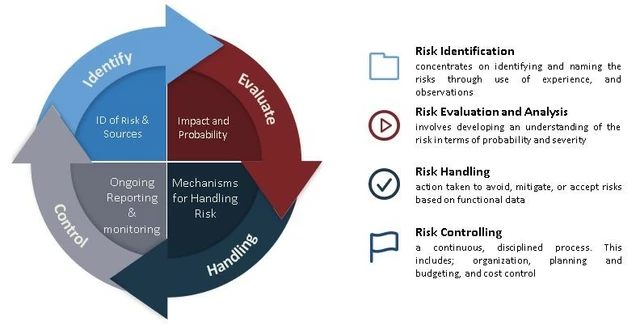If you’ve ever found yourself sneezing nonstop or fighting itchy eyes in the middle of spring, you’ve probably heard of zyrtec. This little tablet gets thrown around at backyard barbecues, workplace chats, and parenting forums every allergy season. Some folks even keep a box stashed in their car, just in case. Yet, most people pop a Zyrtec and hope for the best, barely thinking about what’s actually happening inside their bodies or the real science behind the pill. So here’s the truth: Zyrtec isn’t magic, but it is one of the most consistent allergy-relief options out there.
What Zyrtec Actually Does and How It Works
Zyrtec, which you might see listed as cetirizine on the box, works in a way that’s pretty straightforward once you peel back the mystery. When your immune system spots something harmless, like pollen or pet dander, as a threat, it releases a flood of histamines. These little guys are what make you sneeze, itch, or develop watery eyes. Zyrtec steps in as an antihistamine, blocking those histamines from messing with your body and causing allergic mayhem.
The big difference between Zyrtec and many older allergy meds? Less drowsiness. It’s classified as a “second-generation” antihistamine. Unlike first-generation antihistamines (think Benadryl), it’s less likely to make you feel like you need a three-hour nap. Most folks can take a standard 10 mg dose in the morning and go through their day without any struggle. This means you can still drive, work, or run after your kids.
Zyrtec starts working quickly. Some studies show you could start to feel better in as little as 20 minutes, though most people say it takes about an hour to notice the real effects. Highlights include:
- No prescription required — walk right into any pharmacy.
- Effective against both indoor/outdoor allergies.
- Option for once-daily dosing.
- Works for hay fever, pet allergies, and even skin allergies like hives.
Its main ingredient, cetirizine, is actually derived from hydroxyzine, a much older antihistamine. But while hydroxyzine could knock you out for a weekend, Zyrtec trims out the worst side effects. For most people, it walks the line between fast relief and keeping you alert.
Want to get the best results? Always take your Zyrtec at the same time each day, especially during peak allergy seasons. And don't forget to drink plenty of water. Dry mouth is a thing, even with these "newer" antihistamines.

Zyrtec vs. Other Allergy Meds: What Really Sets It Apart?
Zyrtec is hardly alone in the allergy aisle. You’re probably familiar with rival brands like Claritin (loratadine), Allegra (fexofenadine), and even the older Benadryl (diphenhydramine). Each of these has its own following. But there are some real differences worth understanding so you’re not picking based on packaging or what your neighbor swears by.
Claritin, for example, is popular for almost never causing drowsiness. But it can take hours to really kick in. My wife Aria will often reach for Claritin if she’s got a busy morning ahead and doesn’t need instant results. Allegra is another that rarely causes drowsiness and may work just as quickly as Zyrtec for some, but it’s known to interfere with fruit juices (yeah, you read that right—grapefruit, orange, and apple juice can mess with how Allegra works in your system!). With Zyrtec, you can stick to your normal breakfast routine without worrying about this.
There’s also cost to consider. Zyrtec’s generic counterpart, cetirizine, is usually pretty easy on the budget. If you’re buying for the whole family, you can often get a big bottle of generics at warehouse clubs and save serious cash over time. And because Zyrtec is suitable for adults and children six and up, it can be a one-stop solution for a household full of allergy fighters—just check dosing for little ones.
But Zyrtec isn’t perfect for everyone. Some people still report mild drowsiness (about 10% according to clinical trials), especially in the first week of use. For those sensitive to side effects, or for folks tackling long shifts, Allegra might be the safer bet. On the flip side, if your allergies leave you lying awake sneezing all night, that touch of sleepiness from Zyrtec could actually be helpful. Some allergists even recommend taking it before bed to help you rest easier through high-pollen nights.
One thing that doesn’t get talked about enough: Zyrtec can be used for allergy flares that aren’t just seasonal. Ever been hit by a random wave of hives or a mystery rash? Zyrtec can calm those episodes, too. Even dermatologists recommend it for some skin conditions linked to allergies. It works longer than Benadryl but doesn’t make you forget your own phone number by morning.
If you’re comparing these meds, here’s a quick cheat sheet:
- Zyrtec (Cetirizine): Fast, effective for most allergies, slightly more likely to cause drowsiness than Claritin or Allegra for some.
- Claritin (Loratadine): Slow to act, least likely to cause drowsiness, safe for daily use.
- Allegra (Fexofenadine): Fast, non-drowsy, but needs to be taken on an empty stomach (and avoid fruit juice).
- Benadryl (Diphenhydramine): Works fast, guaranteed drowsiness—better for nighttime but not for daily use.
In real life, many allergy sufferers end up rotating or combining options, with guidance from their doctor. Sometimes, doctors recommend pairing Zyrtec with a nasal steroid spray or eye drops for multi-pronged relief during rough seasons. But always double-check before stacking meds. Even with over-the-counter options, too much antihistamine can lead to an overdose—dry mouth, difficulty urinating, rapid heartbeat, and super grogginess can all happen if you overdo it.

Smart Tips for Using Zyrtec Safely and Effectively
Most allergy meds are easy to use, but a little bit of know-how can make them much more helpful. Let’s break down some tips for getting the best out of Zyrtec so you can breathe easier—literally.
- Be consistent. Take Zyrtec at the same time each day. If you always forget, set a daily phone reminder.
- If drowsiness hits you, try taking your dose at night. It could actually help you sleep while fighting allergy flareups.
- Drink water. Zyrtec can dry you out a tiny bit, especially in hot weather or if you’re working out.
- Try not to mix with alcohol. Even though Zyrtec is less sedating than older allergy meds, alcohol can boost drowsiness for some people.
- Look out for hidden sources of antihistamines: Some cold meds or sleep aids contain diphenhydramine. Don’t double up unknowingly.
- Store your Zyrtec somewhere dry, not in a steamy bathroom cabinet. Tablets last longer in low humidity.
- Parents: Check the dosing carefully for kids! Children’s Zyrtec is usually a syrup, and the measuring cup really matters.
One thing you might not know: Antihistamines like Zyrtec can build up in the body if you use them daily for long stretches. Some people find they get less effective if taken every single day for months on end. If you notice your allergies aren’t responding as well, it’s totally reasonable to take a break for a few days—again, always run this by your healthcare provider, especially if you’ve got tough year-round allergies.
Had a rough time with side effects? There’s some evidence that splitting your daily dose (taking half in the morning and half at night) can smooth out drowsiness or jittery feelings—again, only do this with a doctor’s sign-off.
Medication interactions are pretty rare, but with certain blood pressure drugs or sedatives you should be careful. Zyrtec is usually safe with most prescription meds, but always check with a pharmacist if you’re starting something new. Sometimes, even herbal supplements or multivitamins can change absorption.
A wild tip: During allergy season, pair your meds with non-medicine strategies too. Run an air filter at night, shower before bed to wash off pollen, and keep windows closed on high-pollen days. It makes a bigger difference paired with Zyrtec than you’d guess.
If you’re pregnant or breastfeeding, there’s been lots of research on Zyrtec. Studies since the early 2000s show it’s generally safe when used as directed—in fact, it’s one of the go-to choices many OBs suggest for allergy-prone moms. Still, always discuss with your doctor first.
And about driving or using heavy equipment: Play it safe until you know exactly how Zyrtec affects you. For most people, there’s no problem, but a handful can get foggy-headed, especially the first few days. If you’re new to the medicine, do a trial run on a day you don’t have to be sharp.
Finally, don’t forget that allergies change as you age. What worked for you at eighteen might hit differently at forty-five. If your symptoms shift, or if new side effects appear, check in for a medication review. Since pharmacy shelves are always stacked with new generics and deals, it makes sense to occasionally compare brands and symptoms to be sure you’re still using the best tool for the job.












